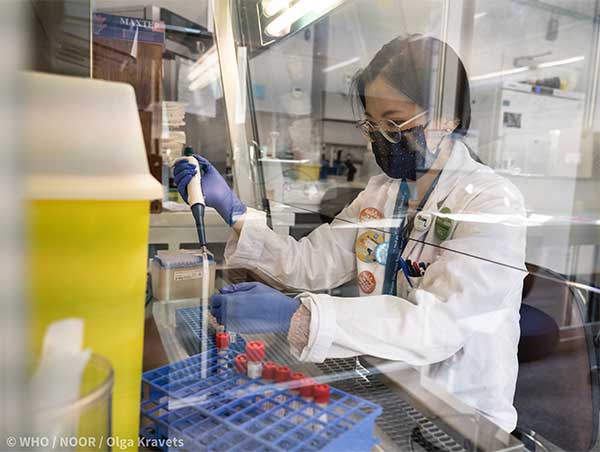
By Francis Allan L. Angelo
The Coalition for Epidemic Preparedness Innovations (CEPI) and the World Health Organization (WHO) have called on researchers and governments to adopt a broader research strategy that will bolster global pandemic preparedness.
The new approach emphasizes the importance of studying entire families of pathogens that can infect humans, rather than focusing solely on those currently perceived as high-risk for pandemics.
At the Global Pandemic Preparedness Summit 2024, held in Rio de Janeiro, Brazil, WHO’s R&D Blueprint for Epidemics released a report advocating for a more comprehensive research methodology.
The strategy, known as the prototype pathogen approach, aims to develop a deeper understanding of a wide range of pathogen families, providing the knowledge and tools needed to respond swiftly to emerging threats.
“WHO’s scientific framework for epidemic and pandemic research preparedness is a vital shift in how the world approaches countermeasure development, and one that is strongly supported by CEPI,” said Dr. Richard Hatchett, CEO of CEPI, in a statement.
He emphasized that this approach will enhance global capacity to respond to unforeseen variants, zoonotic spillover, and unknown threats referred to as “pathogen X.”
The report likened the current state of pandemic research to searching for lost keys under a streetlight, with the light representing well-studied pathogens.
By expanding research to include prototype pathogens, scientists can “expand the lighted area” and gain valuable insights into pathogen families that remain understudied, particularly in resource-scarce regions with high biodiversity.
These areas, which may harbor novel pathogens, often lack the infrastructure necessary for comprehensive research.
“History teaches us that the next pandemic is a matter of when, not if. It also teaches us the importance of science and political resolve in blunting its impact,” said Dr. Tedros Adhanom Ghebreyesus, WHO Director-General.
Ghebreyesus further stressed that global cooperation in advancing knowledge of diverse pathogens is crucial for effective pandemic preparedness.
To support this global research effort, WHO is establishing Collaborative Open Research Consortiums (CORCs) for each pathogen family.
These consortia, led by WHO Collaborating Centres, will serve as research hubs, bringing together scientists, developers, funders, and regulators from around the world. The goal is to foster greater collaboration and ensure equitable participation, particularly from regions where pathogens are likely to emerge.


















